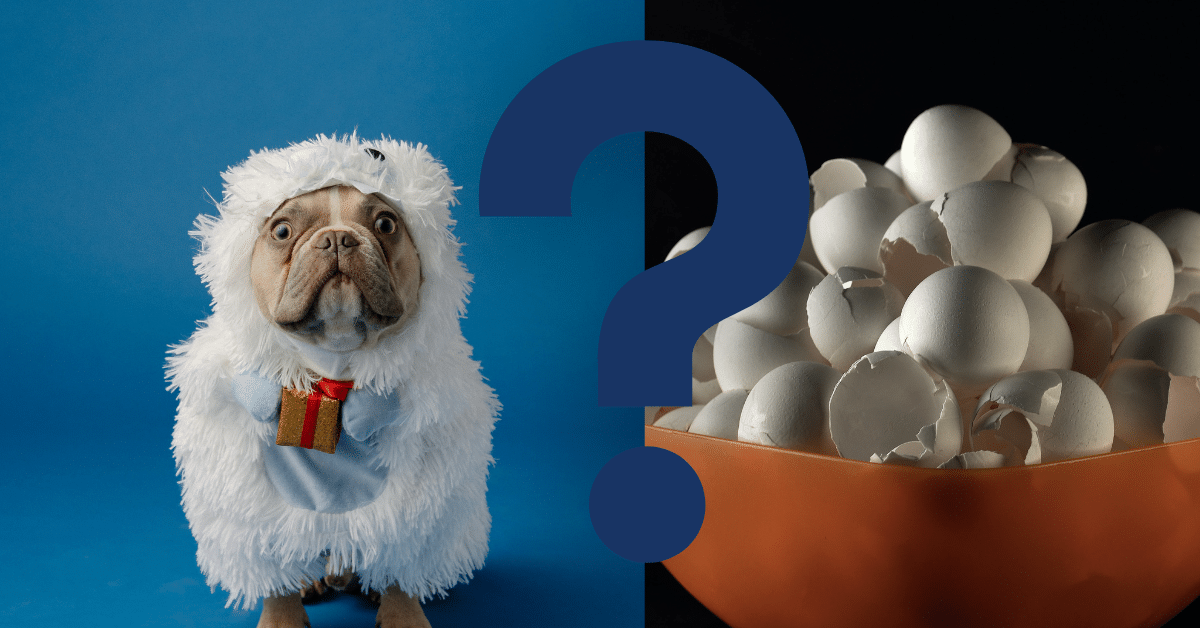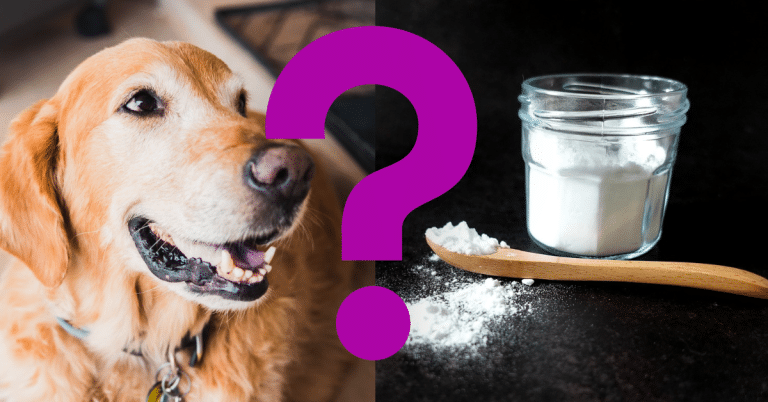Can Dogs Eat Eggshells? A Vet’s Opinion

An eggshell is the outer coating of a hard-shelled egg and some varieties of soft-shelled eggs. Egg shells are a naturally affordable source of organic calcium. But can you feed eggshells to your dog?
Eggshells are not toxic to dogs, but it is not advised to feed them daily. Eggshells can be a choking danger and, if not ground finely enough, can harm a dog’s teeth and gums. However, since they are an excellent source of calcium, small amounts of finely ground eggshells may be advantageous for dogs. As some dogs may be allergic to eggshells, it’s essential to commence with a minimal amount and watch your dog’s reaction. Stop feeding eggshells to your canine if they have digestive problems, and talk to your vet.
Benefits Of Eggshells For Dogs
Eggshells can help dogs in several ways, including:
Calcium
Eggshells are a fantastic supply of calcium necessary to keep healthy bones and teeth. Additionally, calcium is necessary for the movement of nerve and muscular fibers. Dogs’ joints can benefit from calcium and other minerals in eggshells, such as magnesium.
Digestive Health
Chitin, a fiber found in eggshells, can support dogs’ digestive health by encouraging the development of good gut bacteria.
Coat And Skin Health
Eggshells are an excellent source of collagen, which supports the development of healthy hair and skin cells in dogs, helping to enhance coat and skin health.
Dental Health
Eggshells can help clean teeth and gums, lowering the chance of dental issues like tartar and gum disease when ground into a fine powder and added to a dog’s diet.
It’s significant to remember that, even though eggshells can offer these advantages, they shouldn’t be the only calcium source in a dog’s diet. Dogs need to eat a balanced, diverse diet that contains other calcium-rich foods like bones and leafy green vegetables to stay healthy.

How To Safely Give Eggshells To Dogs
It’s crucial to feed your dog eggshells responsibly and safely if you want to. You can give eggshells to your dog safely by following the instructions listed below:
Wash Thoroughly
Before feeding your dog eggshells, thoroughly wash and dry them to remove any dirt, bacteria, or other contaminants. It can be accomplished by lightly brushing them with a brush while rinsing them under running water. After thoroughly cleaning them, dry them by letting them air dry outside or baking them at a low temperature in the oven.
Crush The Eggshells Into A Fine Powder
Crushing the eggshells into a fine powder is critical to avoid choking hazards or harm to your dog’s teeth and gums. Use a coffee grinder, food mixer, or blender to accomplish this. To avoid any sharp edges developing, ensure the powder is as fine as possible.
Your Dog’s Diet Should Contain The Powder
You can sprinkle a tiny amount of finely ground eggshells into your dog’s food. It is crucial to start with a small quantity, such as 1/8 to 1/4 teaspoon, and gradually increase it over time. The powder can be added to your dog’s diet or sprinkled on top.
Monitor Your Dog’s Behavior
Following the introduction of eggshells to your canine, it’s critical to observe their behavior. Eggshells may cause allergies in some canines, so watch for any symptoms, such as hives, breathing problems, swelling, or itching. Stop giving your canine eggshells and call your veterinarian if they notice any digestive problems, such as diarrhea or vomiting.
Use Eggshells As A Supplement, Not A Replacement
While eggshells can provide several nutrients, monitoring your dog’s reaction to them is essential. Some dogs may be allergic to eggshells, so watch for any signs of an allergic reaction, such as itching, swelling, or difficulty breathing. Stop giving eggshells if your dog experiences any digestive issues, such as diarrhea or vomiting.
You can safely give eggshells to your dog and profit from their health benefits by following these instructions. However, it’s best to speak with your veterinarian if you have any worries or queries about feeding your dog eggshells.
Will Eggshells Make A Dog Sick?
2 paragraph
Can dogs eat eggshell variations?
Eggshells come in various shapes and sizes; dogs can eat them if they are correctly prepared and in moderation. Here are a few typical eggshell variations:
Cooked eggshells: Eggshells that have been cooked, thoroughly cleaned, and ground into a powder are safe for dogs to consume. The eggshells can be boiled for 5 to 10 minutes, dried, and ground into a fine powder before including them in your dog’s diet.
Raw eggshells: Eggshells that have not been cooked: Dogs may also be fed raw eggshells if thoroughly cleaned and powdered. It’s crucial to remember that raw egg whites contain a protein called avidin, which can prevent the uptake of the B vitamin biotin. You should either separate the egg yolks from the whites before giving your dog the eggshells or cook the eggshells first to denature the avidin to prevent this problem.
Organic or free-range eggshells: Because they are less likely to contain antibiotics or other harmful chemicals, organic or free-range eggshells may be healthier for dogs. The eggshells must still be cleaned and prepared before being given to your dog.
Commercial eggshell supplements: Additionally, commercial eggshell supplements are made from sterilized, finely ground eggshells available for canines. These vitamins might be a practical choice if you do not grind the eggshells.

Vet’s Summary
If given sparingly and prepared correctly, eggshells can be a beneficial addition to a dog’s diet. They are an excellent source of calcium and other minerals, can support joint and digestive health, and may even help your canine breathe more fresh. Eggshells should be washed and ground into a fine powder before giving them to your canine in a controlled manner. If you notice any symptoms of digestive distress or allergic reactions, call your veterinarian immediately.
Probiotic pills can be helpful for a dog’s digestive health in addition to eggshells. Live bacteria and yeasts called probiotics can support healthy gut flora, which can support immune function and lessen gastrointestinal problems like diarrhea and constipation. Probiotic supplements can be particularly beneficial for dogs who have recently taken antibiotics or have sensitive stomachs. But it’s crucial to pick a top-notch probiotic supplement specially made for canines and adhere to the dosage guidelines. Before giving your dog any new supplements or making significant dietary changes, always check with your veterinarian.
Videos To Watch
If you are wondering if you give eggshells to your dog, watch this:
And if you want to know what a dog can NOT eat, watch this:






